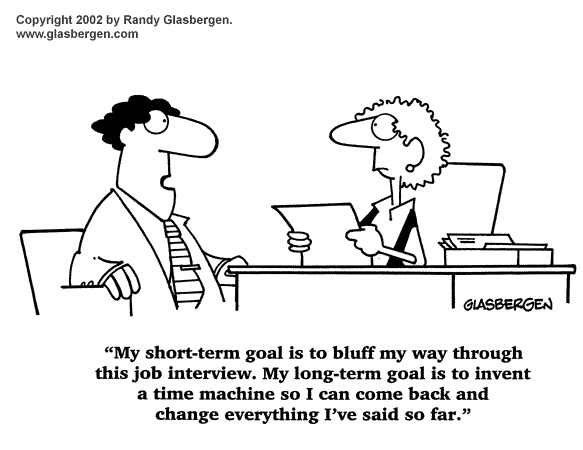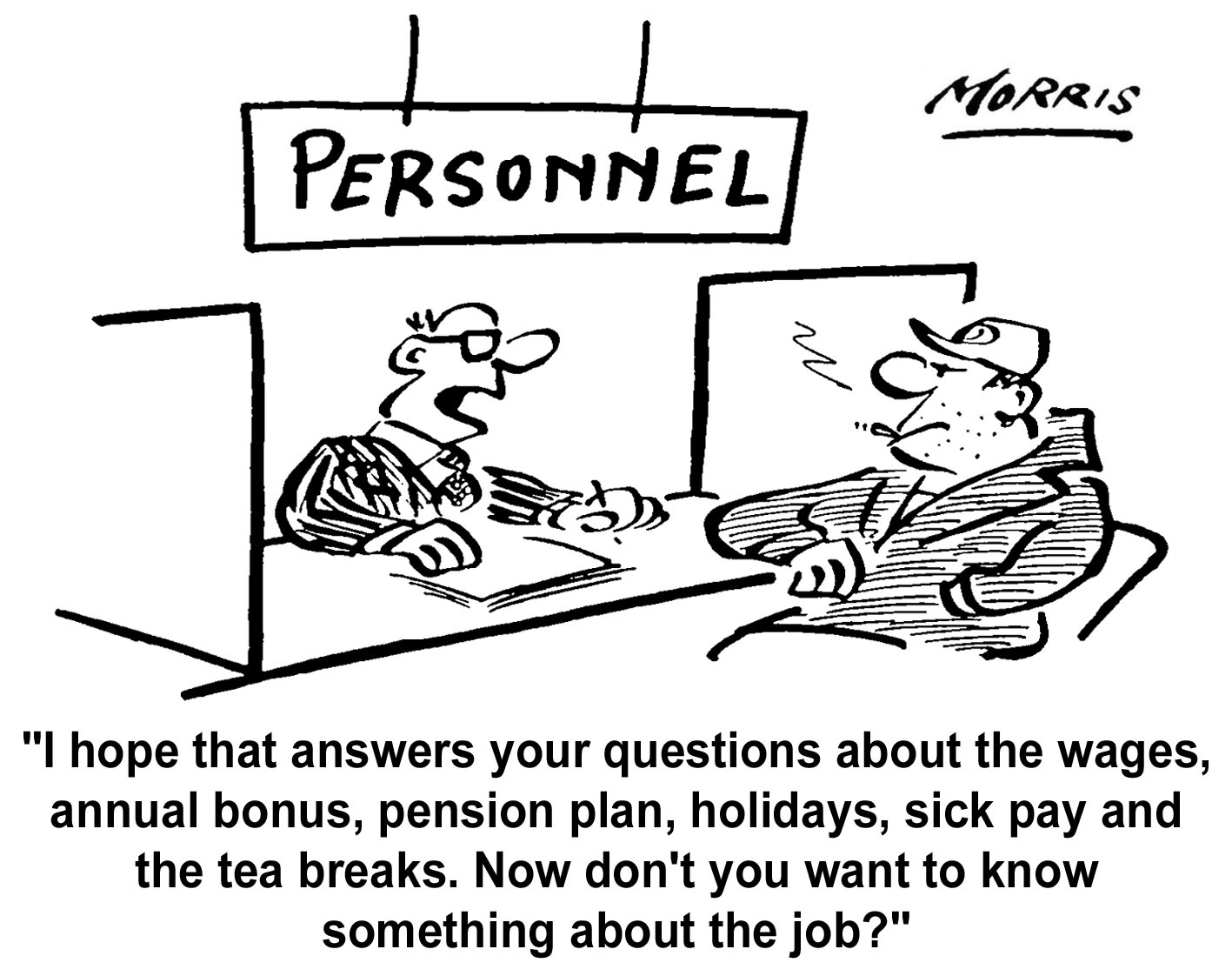9 top interview tips
Home › Free Advice › Interviews › 9 Top Interview Tips
You have several years of work experience and you’re applying for jobs every day. Your CV is up to date, yet you are still unemployed. What is wrong with employers these days? How is this possible?
Of course, there are multiple reasons why you might not be getting hired. The manager might be concerned you will eventually take their job, or they are looking for EXACT copy of a person that left. Perhaps unrealistic job requirements have been written by a person who has no idea about the job, or you don’t have anyone at the company who can vouch for you (and the person who gets hired does). While all of these reasons might be valid, unfortunately, many job seekers don’t stop to consider that the problem might not be employers but themselves.
It’s a hard concept that most job seekers have trouble wrapping their heads around, but applicants frequently (and inadvertently) display signs that tell an employer that they’re not the best fit for the job.
Yes, it is true that there are fewer jobs and there is more competition, but ask yourself: are you doing everything you can?
There are number of reasons why employers might have passed you by. Interview Coach, Margaret Buj coach provides her top 9 reasons why you are not getting hired.
1. You are dishonest
Any lies you tell in your job search, whether on your CV or in an interview, will come back to haunt you. Everything you tell an employer can be discovered, so it is best to be honest from the get-go. If you’re concerned about something in your past, invention is not the answer. Use your cover letter to tell your story, focusing on your strengths and accomplishments and explaining any areas of concern if needed.
In my 6 years of working as a professional recruiter, I have certainly noticed that whatever is written on a candidate’s CV is sometimes heavily embellished. When I start asking probing questions about some specific aspects of the candidate’s experience, it sometimes turns out what they claim to be an expert in, was only a very small part of what they have actually done.

2. You are not prepared.
Coming to the interview with no knowledge of the company will certainly be detrimental to your chances. Make sure you do your homework before an interview. Not asking good questions at an interview can also cost you a job offer. I do remember speaking to one of the Managers I was recruiting for who was very unimpressed with a candidate for a senior position, as she did not ask any questions at the end of the interview! This candidate might have known everything about the company, but he did not know anything about this Manager’s expectations on a day to day basis. This made him think she was not motivated to do the job. Needless to say, this person did not get hired.
Explore the company online, read some recent press releases and most importantly, prepare answers to the most common interview questions and have someone give you a mock interview. The more prepared you are, the more employers will take you seriously.
3. You act disinterested / not enthusiastic enough
Be enthusiastic and positive – especially when it comes to a potential new job. Appearing disinterested and not motivated enough is really one of the biggest mistakes candidates can make in the interview.
I can’t tell you how many times in my recruitment career I’ve seen highly qualified candidates rejected after interview, because they did not seem passionate about the company or acted like if they just wanted to check out what other opportunities are out there (instead of demonstrating they really want the job they were interviewing for). I can also remember a number of occasions when 2 equally experienced candidates got through to the final interview stage, and the one who got the job was always the one who was the most enthusiastic and the most prepared.
Every business wants to put their most enthusiastic people forward with important clients and customers, so acting the opposite will get you nowhere.
4. You don’t have enough experience or it is not from a relevant industry
Managers don’t have as much time as they used to for the training and mentoring of new employees. The more relevant experience you have, the more likely you are to hit the ground running without a lot of hand-holding.
Also, at the moment employers have a lot of candidates to choose from, and unless you fulfil 85-90% of the requirements as a minimum, you might not want to bother applying. Every day, I see the same candidates applying for almost every job we are advertising on our website even though with no experience in our industry they’d never be considered. You also appear desperate if you apply for every job that gets posted by one company. Focusing your efforts on applying for a smaller number of jobs that you are well qualified for will get you better results than applying for every job vaguely relevant to your background.

5. You can’t/didn’t give examples.
Hiring managers want people who can prove that they will increase the organisation’s revenues, decrease its costs or help it succeed in some way. If all you give to an employer is a bunch of empty words about your accomplishments, you don’t demonstrate how you can help the company.
One of the most detrimental mistake candidates make is not providing specific examples in the interview. The more you can quantify your work, the better.
6. You use bad language
It is definitely tempting to tell anyone who would listen how you can’t stand your boss/company, but talking negatively about current or previous employers is one of the most detrimental mistakes a candidate can make. Find a way to turn those negative things job into positives. If you can’t get along with your co-workers, for example, tell the prospective employer that you’re looking for a work environment where you feel like you’re part of a team and your current position doesn’t allow for that kind of atmosphere.
7. You discussed salary – at the wrong time
As a general rule of thumb, you should never bring up salary before the employer does. Doing so makes the employer think that you only care about the money involved, not about helping the employer succeed.
It is of course understandable that you’d want to earn more if you were to change jobs, but if higher salary is your only motivation, you are not likely to impress the interviewer.
If the topic does arise, however, be honest about your salary history. Employers can verify your salary in a matter of minutes these days, so lying only makes you look bad. In “Land That Job!” there is a whole chapter about how the salary game is played in today’s market and how to negotiate the best possible salary.
8. You have a terrible reputation – online OR offline
Let’s start with your reputation online. Social networking sites and online searches are the newest way that many employers are checking up on prospective hires. Every blog post, tweet, status update and photo leaves a footprint online, whether you like it or not. With over 80% of potential employers researching you online (source: CIPD), you need to make sure your online reputation is up to scratch.
Employers will dig up information about you from your Facebook page. If you don’t want them to see it, you should change your settings to private. But they also look on other popular networking sites like LinkedIn, MySpace, Bebo, YouTube and Twitter, and also some lesser known sites like Xing.
The golden rule is to build completely separate personal and professional online personas: use one email address for your social activity – Facebook, etc – and a totally separate one for your career-related activity on LinkedIn and so on. You might even maintain two separate Twitter accounts.
If you have posted stuff you’d rather an employer didn’t find, delete it if you can (e.g. delete your entire Twitter account) or bury it if not (e.g. remove tags with your name on from other people’s Facebook photos). If someone else has commented negatively about you online, counteract it with three times as much positive publicity, such as getting recommendations on LinkedIn.
As for your professional reputation ‘offline’, employers might take informal references on you from people you both know, and if more than 1 reference is not positive, there is no chance you could get a job with that particular company. It is always a good idea to leave a company on good terms!
A few weeks ago a candidate I’ve spoken to has given me a name of one of our employees as a referee – they used to work together in the past. Of course, I have contacted that person to ask for their thoughts on my candidate. I am sure you can imagine my surprise when that person explained they’ve fired that candidate in the past for a number of reasons that shall remain anonymous here. Therefore, if you are providing someone’s name as a referee, make sure this person is happy to provide reference for you.

9. You don’t look the part
Plain and simple – if you are applying for a £150k job, don’t come in for an interview wearing a £50 suit. Whilst most candidates I have dealt with looked very professional, there were several who clearly thought what they wore didn’t matter (it did). I remember one particular situation when I met in the reception a female candidate whom I have interviewed previously over the phone. She sounded professional and as she was the only woman in the interview process for this senior sales role, I desperately wanted her to do well in the interview. Sadly, her chances were ruined by: a) wearing a bra 2 sizes too small which was clearly visible from underneath her blouse; b) wearing make-up more suitable for a night out; c) wearing such an overbearing perfume that the smell was lingering in the meeting room for the rest of the afternoon.
A well-prepared, enthusiastic, professional and honest candidate will more than likely get the job above anyone else. Do all you can to be the best in your interview. Do your research, prepare, don’t take any chances and the job will be yours.
